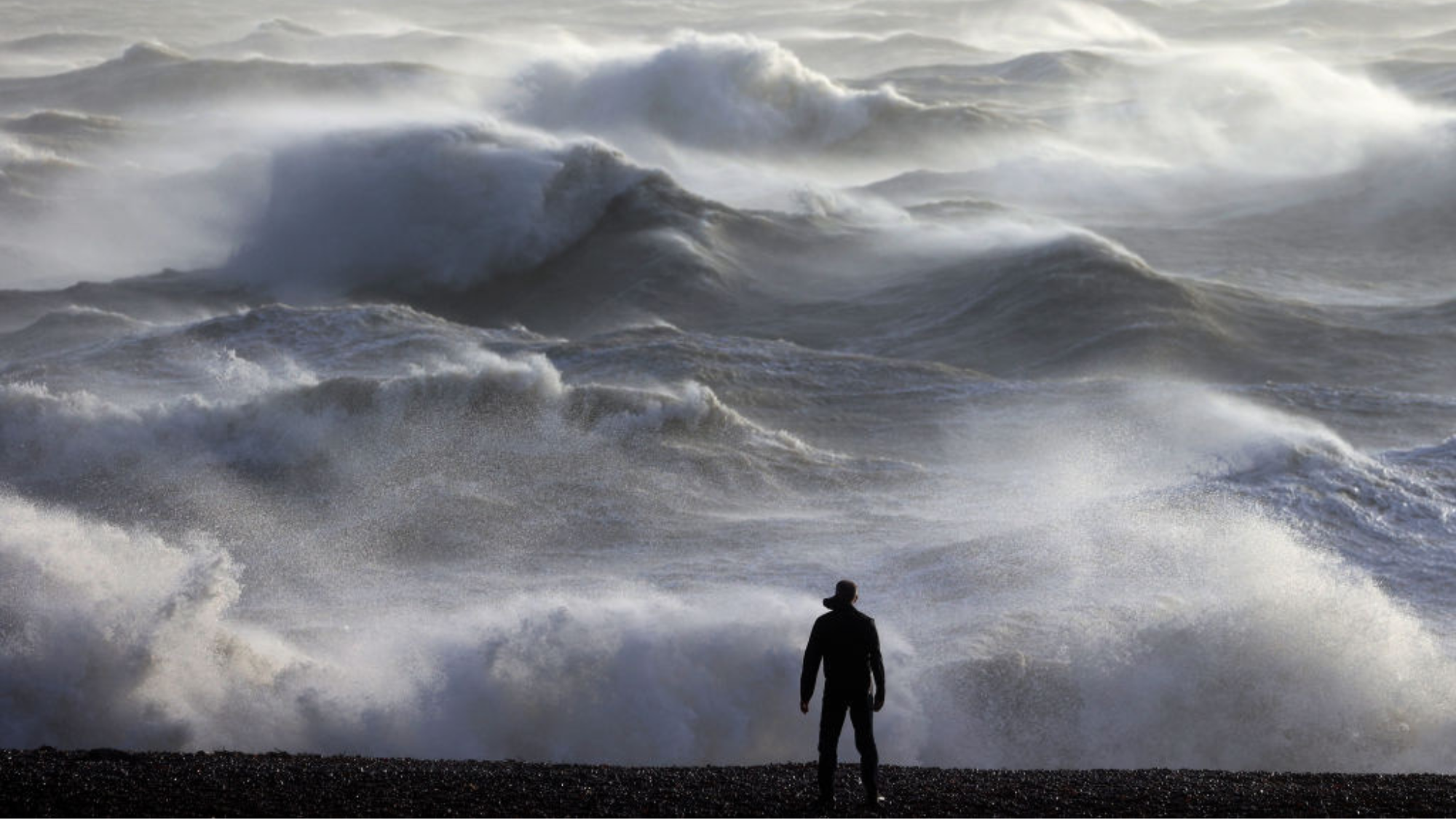Are UK storms getting worse?
Severe weather warnings remain in place across parts of UK

A free daily email with the biggest news stories of the day – and the best features from TheWeek.com
You are now subscribed
Your newsletter sign-up was successful
The new year got off to a wet and wild start as Storm Henk caused flooding and power outages across parts of the UK.
The Met Office issued more than 300 flood warnings for England yesterday as the road and rail networks continued to face disruption caused by heavy rainfall and strong winds. Henk comes "hot on the heels" of Storm Gerrit, which led to the deaths of three people in December, said the BBC.
Gerrit and Henk are the seventh and eighth named storms to hit the UK in three months, "the fastest start to a storm naming season" since the labelling system was put in place in 2015, said the Met Office.
The Week
Escape your echo chamber. Get the facts behind the news, plus analysis from multiple perspectives.

Sign up for The Week's Free Newsletters
From our morning news briefing to a weekly Good News Newsletter, get the best of The Week delivered directly to your inbox.
From our morning news briefing to a weekly Good News Newsletter, get the best of The Week delivered directly to your inbox.
Is the UK experiencing more storms?
Evidence doesn't appear to indicate that storms have become more frequent in the UK. Storm activity comprises both rainfall and wind, said the Met Office, and the latest State of the UK Climate report, released in 2022, found that wind records were "comparable in storminess with other years in recent decades".
The 2018 State of the UK Climate report found that in the previous five decades, there had been "no compelling trend" in maximum wind gust speeds rising or falling. But it did find a "discernible trend" in increased rainfall.
And certain regions have experienced episodes of particularly severe weather in recent months. Storm Ciarán "created quite a ruckus" across the south of England in early November, with the Channel Islands feeling "the brunt of the storm", according to MetDesk analysis in The Guardian. Winds of more than 100mph were recorded at Jersey airport.
"We've had these storms for forever really," Dr Michael Byrne, a climate scientist at the University of St Andrews, told the i news site following Ciarán.
A free daily email with the biggest news stories of the day – and the best features from TheWeek.com
But, he explained, warming global temperatures mean the atmosphere is storing more water vapour – "so when a storm like this comes along, it's just more water vapour… If the exact same storm happened 50 years ago, it's very likely we wouldn't see as much rain."
Are storms getting more intense?
"The 'big picture' across Europe is that scientists expect storms to generally become less frequent," said i news. But "when they do occur, they will be more severe", with "more intense rainfall".
And as weather patterns change, different regions can expect to experience trend variations. Oxford University climate researcher Dr Nicholas Leach told the site that generally, northern regions of the UK would be "less impacted" by the increased risks posed by storms. "Once you get to the north of Scotland, some studies have suggested that this risk won't really change at all", though many "uncertainties" remain, he said.
Met Office analysis published in the Quarterly Journal of the Royal Meteorological Society in 2022 also found a "noteworthy north-south divide" in the number of days of thunder recorded over a 30-year span, with a "small increase" in the north and "a small reduction in the south".
What is the longer term forecast?
Storms are complex weather systems that can be affected by "small changes in regional and global patterns", said the Met Office, such as sea surface temperatures, global jet streams, climate patterns (such as El Nino) and levels of sea ice. As global temperatures continue to rise and impact these conditions, climate models suggest some will "strengthen storms and others will weaken them".
By the late 21st century, the frequency and intensity of windstorms is expected to increase, according to the 2023 UK Climate Projections report, and winter wind speed is expected to rise.
Recent "successive severe storms" have "highlighted the challenges that the UK faces" from extreme weather, said a National Audit Office report published in December. It concluded that more needs to be done to increase climate and weather resilience, and to a quicker time frame, bringing forward the government's 2030 target to do so to 2025.
Julia O'Driscoll is the engagement editor. She covers UK and world news, as well as writing lifestyle and travel features. She regularly appears on “The Week Unwrapped” podcast, and hosted The Week's short-form documentary podcast, “The Overview”. Julia was previously the content and social media editor at sustainability consultancy Eco-Age, where she interviewed prominent voices in sustainable fashion and climate movements. She has a master's in liberal arts from Bristol University, and spent a year studying at Charles University in Prague.